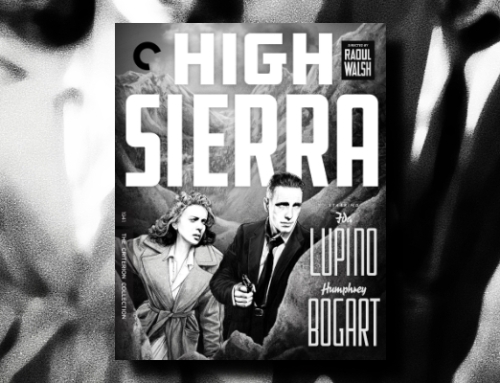
The Cameraman
d. Edward Sedgwick (1928)
The Criterion Collection
 Sometimes a good movie is made even more important and interesting because of the history surrounding it. The Cameraman is a good movie, and maybe even a great one, but it also represents a pivotal — some might even say tragic — moment in Keaton’s career.
Sometimes a good movie is made even more important and interesting because of the history surrounding it. The Cameraman is a good movie, and maybe even a great one, but it also represents a pivotal — some might even say tragic — moment in Keaton’s career.
After a string of innovative, courageous silent comedies — including such masterpieces as Our Hospitality, Sherlock, Jr., The General, and Steamboat Bill, Jr. — we have in The Cameraman peak Buster Keaton playing the titular character, doing crazy stunts and pulling clever gags with his stoic face. However, there is a softness to The Cameraman, as if Keaton is suddenly playing things safer — if not exactly safe — in terms of gags and story. That’s where the fascinating, sad, and important story behind the film comes in. The Criterion Collection has just released a stacked edition of the film that does the film itself justice (it’s a new 4K restoration with a new score) and also, with strong supplemental material, digs deep into what this film represents in Keaton’s career.
Prior to The Camerman, Keaton made his films at his own lot and under his own control. If he wanted to do a gag, he did it, even if it put him at significant risk for injury. It became clear, though, that making movies this way would be increasingly difficult. Enter MGM, a powerful studio with loads of resources. When they offered to sign Keaton up as one of their stars, Keaton took the deal, though he was apparently warned not to do it by, among others, Charlie Chaplin. He came to call this deal “the worst mistake of my career.”
Perhaps Keaton hoped against sense that he’d still be able to make films the way he always had — on the fly, elaborate stunts and camera work — and The Cameraman does have the gleam of his creative mind. Though the studio had Edward Sedgwick assigned to direct, sources say that Keaton still had a say in how things would be done. However, this was a much more controlled environment, and MGM didn’t give him license to wreak havoc on the screen as he had done or to put himself at quite as much risk. What we get, then, is a wonderful Keaton film that feels just a bit less frenetic. Sadly, things would only get worse. Keaton’s next film with MGM, Spite Marriage, is still delightful but executives further tamped down Keaton’s ideas. Not incidentally, Spite Marriage is included on this Criterion release and, though not a masterpiece, is nonetheless a wonderful film.
The Criterion Collection edition goes into these stories on the disc as well as in the nice booklet that accompanies the release. But it doesn’t stop there: also included is a wonderful supplement called Time Travelers, in which Daniel Raim looks at the locations in the film to show us Hollywood in 1928 (I loved this feature); the release also has a new 4K restoration of the 1979 documentary The Motion Picture Camera, which goes into the history of, well, the motion picture camera, which is a kind of co-star in The Cameraman.
With all of that, what about The Cameraman itself? Keaton plays a young man named Buster. When the film begins, Buster is trying to make money by taking tintype portrait photographs on the street. One particularly alluring subject is Sally Richards (played by Marceline Day). She leaves, escorted away by her boyfriend Harold Stagg (Harold Goodwin), before he has a chance to give her the finished portrait. So he chases her down, right to the MGM newsreel office.

While he’s there, Buster is struck not just by Sally’s beauty but also by the beauty of the state-of-the-art camera the cameramen lug around the city to capture the news.

With Sally’s encouragement, Buster decides to sell his tintype camera and purchase a old, but functioning, motion picture camera in order to become a legitimate cameraman, perhaps impressing Sally in the meantime.
His first results with the confounded contraption are comical to most of us but humiliating for him:

Taking his botched footage to the MGM newsroom to screen, he and Sally are the only ones not amused.

It’s no secret how this film will turn out, but it’s fun to get there. Buster continues to court Sally (taking her on a hilarious date to the swimming pool (the Venice Plunge, I learned in Time Traveler!)) and seeks the footage that will get him a position at MGM.

It’s when seeking that footage that the film feels, to me, most like what Keaton was famous for. Filming a gang war in Chinatown, Buster is in the thick of it, and Keaton puts his body at risk again to get a classic moment in film history.

With two Buster Keaton comedies, this release is easy to recommend as essential. Can something be made even more essential? Sure: the supplements on this make this even more essential. Highly recommended, and all that, find and love these films, these characters, and the whole story this release tells.








Leave a Reply